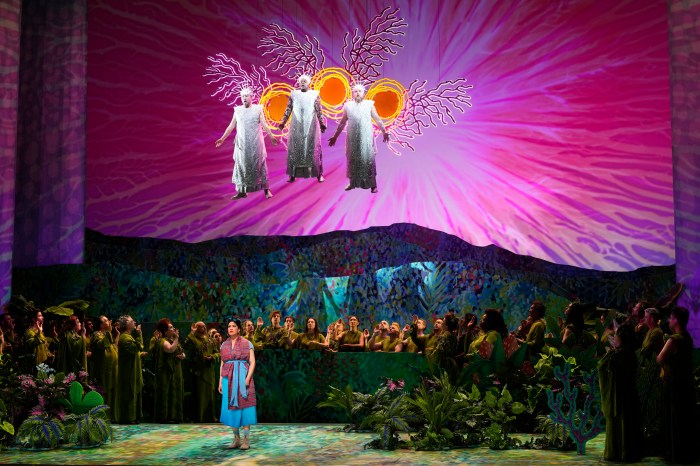State Supreme Court says Constitution’s freedom of expression shields nude performances
In yet another case of state constitutions providing more room for liberty than the U.S. Constitution, the Oregon Supreme Court reaffirmed its broad view of state protection for sexually-oriented expression in a pair of decisions issued on September 29.
The first case struck down a state law making it a crime to present a “live public show” in which performers engage in “sexual conduct.” The second struck down a municipal ordinance that required that any nude performance take place more than four feet away from audience members.
In both cases, the court was relying on the Oregon Constitution’s provision that “No law shall be passed restraining the free expression of opinion, or restricting the right to speak, write, or print freely on any subject whatever; but every person shall be responsible for the abuse of this right.”
Since the 1980s, the state’s highest court has taken the view that this provision sharply limits the power of the state to curb sexually-oriented businesses. In fact, the court’s rulings have been so wide-ranging that an attempt was made to amend the Constitution during the 1990s to cut back on such protection, but evidently the court was in touch with the sentiments of most Oregonians, who defeated the proposed amendment.
In the first case, state officials went after Charles Ciancanelli, proprietor of a business in Roseburg called Angels. Writing for the court, Justice Michael Gillette described a visit by undercover police to the club.
“During the first visit, the officers requested and paid for a ‘toy show.’ A female employee of Angels led them into a room and proceeded to ‘perform’ for them by, among other things, removing her clothing and inserting a dildo and her finger into her vagina,” Gillette wrote. “During the second visit, the officers paid for a ‘two girl show.’ During that show, two women performed a striptease, rubbed their breasts against the officers’ chests, and engaged in oral sex with one another.”
After the second visit, the police officers arrested Ciancanelli and the performers, and the owner was indicted for promoting a live sex show, among other crimes. One of the performers was under 18 and the sexual contact between the paid performers and the police ran afoul of prostitution laws. The court’s decision pertained only to the “live sex show” charge against Ciancanelli.
Both the trial court and the state’s intermediate court of appeals rejected Ciancanelli’s argument that the sex-show statute violated the state Constitution, and he was convicted at trial and lost his first appeal. The appeals court found that although “sex shows” were expression protected by the state constitution, the statute fell within a “well-established” historical exception, because laws forbidding such activities had been on the books in the U.S. dating back to the 17th century and certainly during the 19th century when Oregon adopted its Constitution.
Gillette and a majority of the court found that the intermediate appellate court had misconstrued the precedents. The state was arguing that the conduct in question was not “expressive” within the meaning of the Constitution and even if it were, that the conduct was subject to punishment as an “abuse” of the right of free speech. The Supreme Court was not buying that argument. Pointing to its precedents over two decades, it found that nude dancing, while not necessarily communicating an articulate political message, nonetheless was an expressive activity, as even the U.S. Supreme Court has found under the federal First Amendment.
The court found that the 19th century Constitution reflected a “natural law” approach under which government power was to be limited and liberty to be maximized. The provision about “abuse of this right” was intended, in this view, to apply to instances in which somebody’s expressive activity had caused actual injury to somebody else, rather than merely offense to the sensibilities of others. It thus prevents the state from legislating against so-called victimless crimes or offenses against “public morality” by expressive conduct.
From that analysis, it was easy for the court to conclude that a prohibition on Angels’ live sex show could not stand. Only paying adults unlikely to be offended were admitted. The underage performance and the prostitution charge were separate issues not considered in this case.
In the second opinion, the court dealt with an attempt by the city of Nyssa to enforce a local ordinance against a nude dancing club where undercover police officers witnessed performers on stage leaning down to less than a foot from paying customers. The local ordinance required a four-foot space around performers. Applying its reasoning from the Ciancanelli case, the court concluded that this local ordinance was aimed at expressive conduct that enjoyed constitutional protection.
gaycitynews.com


































